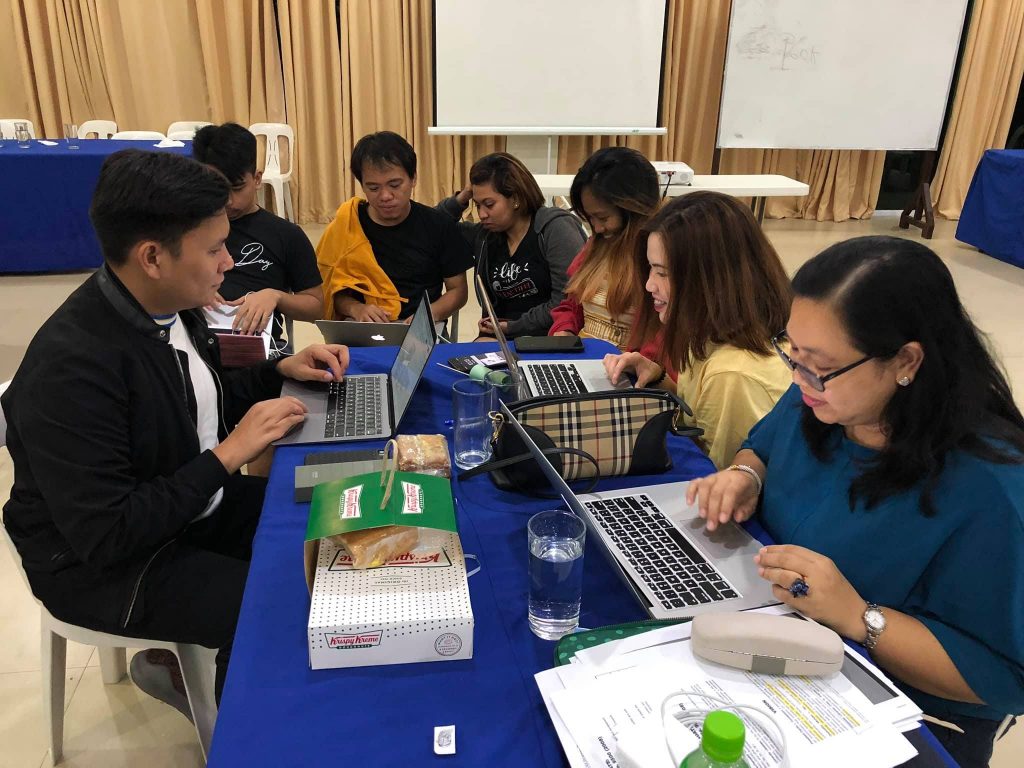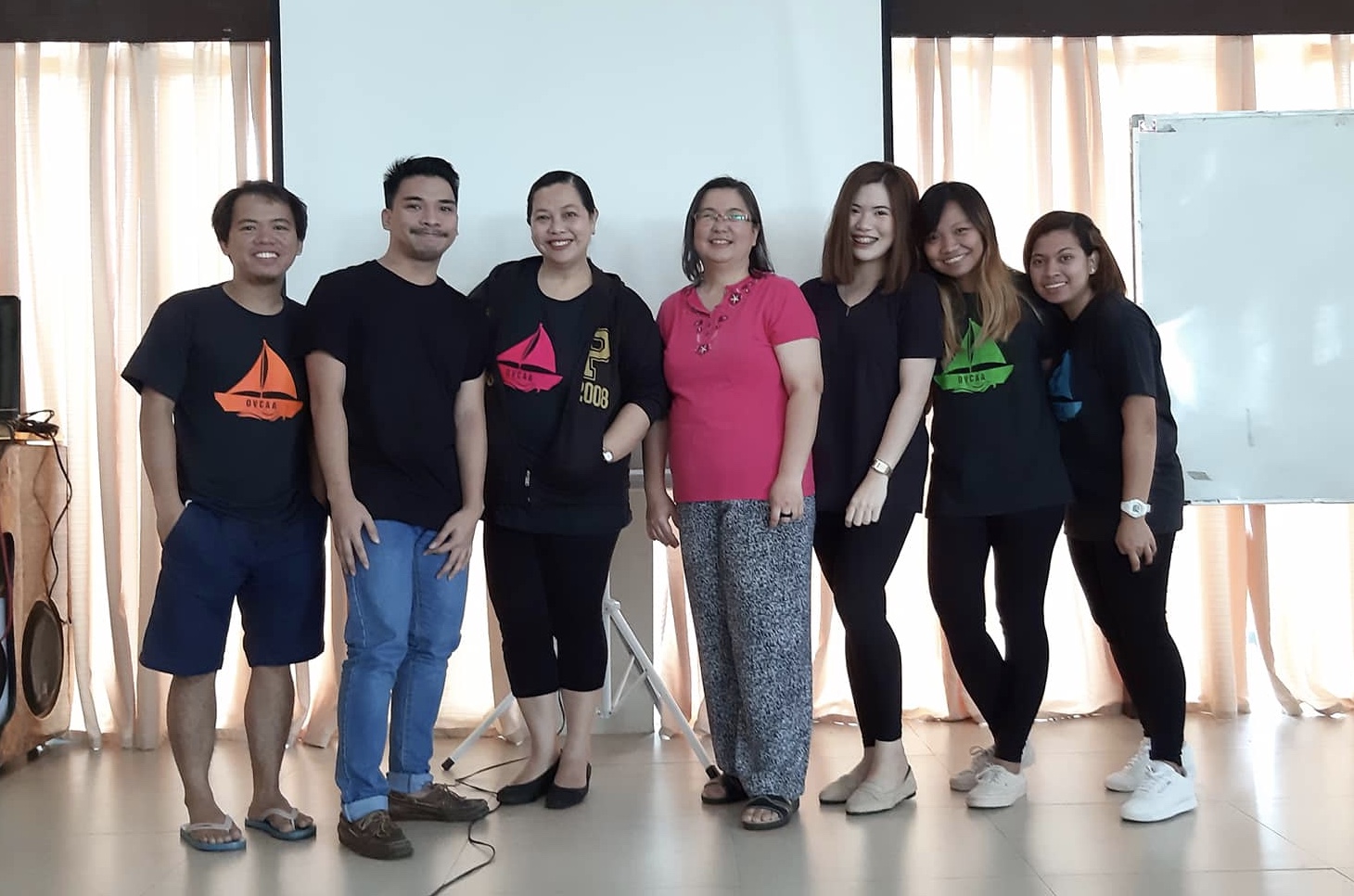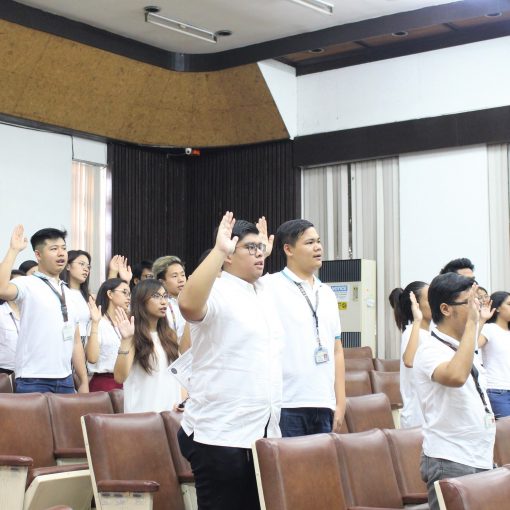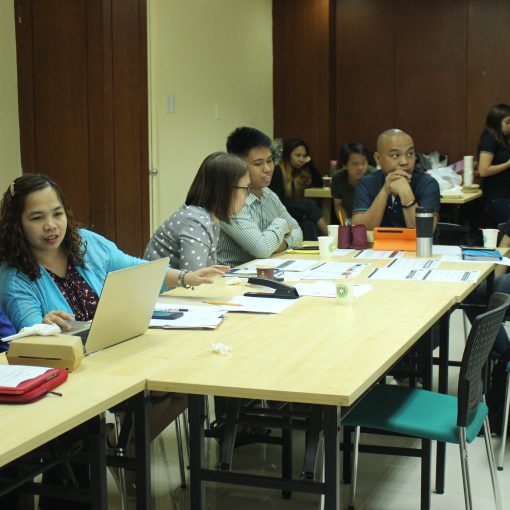The NSTP Diliman Office, mandated to carry out operational functions under the Office of the Vice-Chancellor for Academic Affairs (OVCAA), attended the UP Diliman OVCAA Operational Planning Workshop 2019 last July 12-14, 2019 at Shercon Resort and Ecology Park, Batangas.
Represented by the Office’s staff and heads, NSTP Diliman engaged in a series of workshops about office excellence improvement alongside the seven other units of the OVCAA.
In VC Amor’s opening speech, she emphasized the need for the offices to properly present their operational plans as well as their accomplishments. Aside from this, she also expressed support and appreciation to all the staff and office heads. VC Amor also made a prelude of the discussion of Philippine Quality Award (PQA) evaluation criteria.
During the first day, Dr. Amor introduced the management evaluation tool designed by the PQA as basis for the offices’ performance evaluation. PQA lays the foundation for management quality evaluation based on seven criteria namely: leadership, strategy, customer/citizen, knowledge management, operations, and results.
The NSTP team presented the Office’s achievements from June 2018 to July 2019, such as the NSTP Program Mapping based on Outcomes-Based Education (OBE) principles where the Office conducted a series of workshops; the University Virtual Learning Environment (UVLe) training for NSTP instructors which enabled them to better understand and use the online course management system; and other special events. The drafting of the “Pangkalahatang Gabay sa Implementasyon ng NSTP sa UP Diliman” is also an important accomplishment of the Office as it gave the NSTP coordinators, instructors, and students a clear view of how NSTP is implemented in the University.

The team also presented the Office’s accomplishments based on the mandates provided for NSTP Diliman. In connection to its coordinating task and support for units offering NSTP course in the implementation, monitoring, and review of their NSTP projects and activities, the Office conducted orientations and recognition programs for NSTP coordinators, teachers and support staff. The Office also initiated the OBE-dization of the NSTP Common Module and attended public consultations and congresses as proactive steps toward the improvement of the implementation of NSTP in the University.
During the presentation of the PQA evaluations, NSTP Director Arlyn P. Macapinlac reported some of the Office’s best practices as well as some gaps in managing the office. One of the most notable best practices of the office is it’s recognition of the mandate, vision and values expressed in RA 9500 (UP Charter of 2008), UP PDLC Strategic Plan 2017-2023, and Chancellor Michael L. Tan’s Vision Paper in 2016, which calibrate the Office to the optimal fulfillment of its mandate. The Office also found that conducting NSTP Program Mapping and Assessment (OBE) to ensure that the program is aligned with the aforementioned law and MVOs is a strength.
It is also a notable strength that NSTP Diliman launches capacity building workshops/trainings for its staff. The conduct of regular staff meetings and preparation meetings/workshops before each major activity gives everyone the chance to share and discuss ideas, therefore fostering a healthy and productive working environment.
After the main workshop on operational planning, the eight offices presented their PQA evaluations as well as their operational plans for the rest of the year.
On the third day, the OVCAA’s Source of Solutions (SOS) projects from the Office of International Linkages, University Library, and the University Registrar, were reported. SOS projects are special initiatives planned and carried out by units with the aim to address urgent concerns in the University. The three units presented substantial visions and well-written plans for their projects. After all the reports, Dr. Ma. Vanessa L. Oyzon, director of the General Education Center (GEC) consolidated and synthesized the event.
The 2019 OVCAA Operational Planning ended hopeful and promising, with the offices learning the crucial role that evaluation plays in achieving excellent office management.
by Arron Paul M. Lambon





